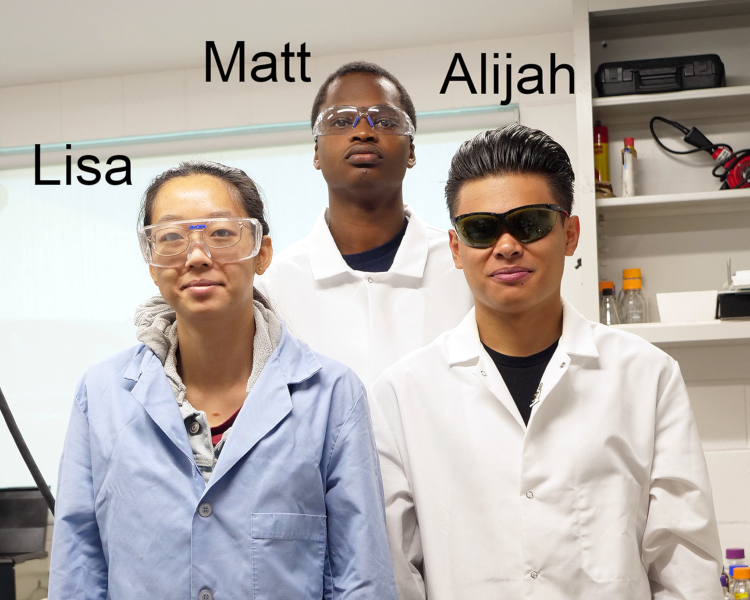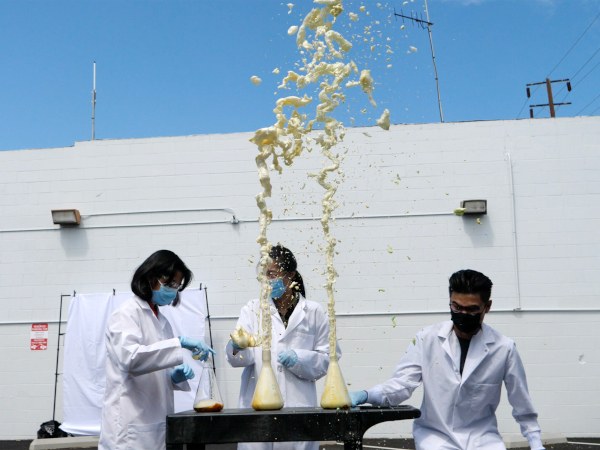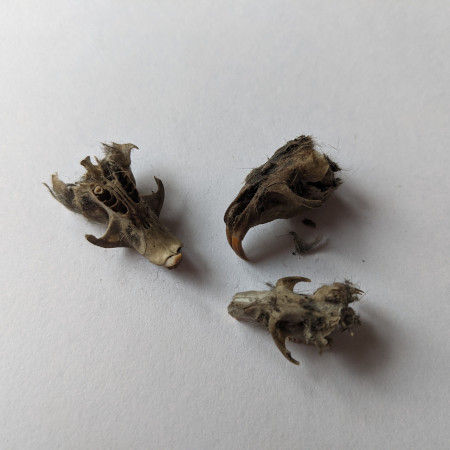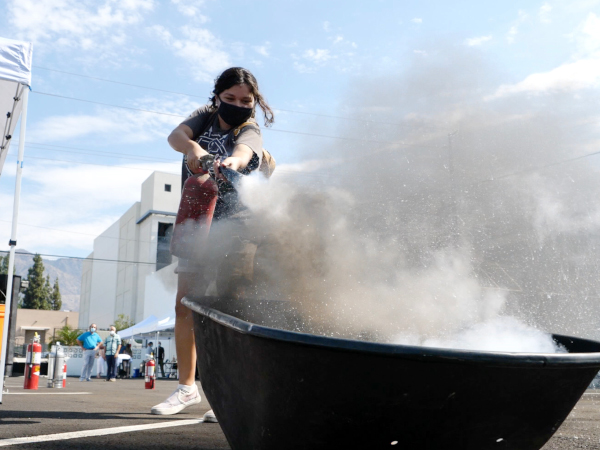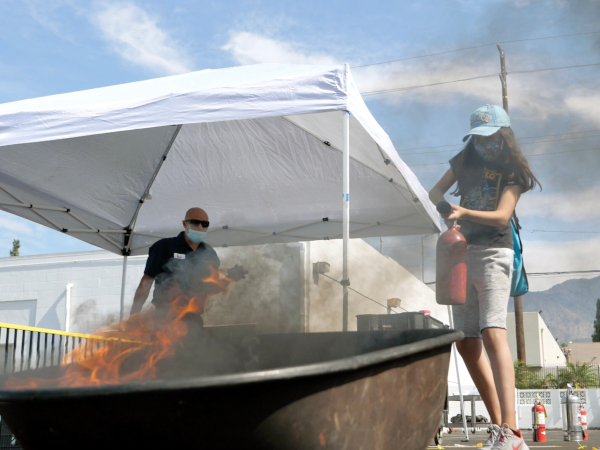This summer 2021, the Oak Crest Institute of Science and the City of Monrovia teamed up to provide local 7th to 9th grade students an opportunity to experience hands-on science experiments through classes in a virtual new format: Junior Researcher Academy (JRA) at Home. Thanks to the generous support from the Boston Scientific Foundation it was possible for each junior researcher to conduct professionally designed experiments from home.
Junior Researchers were guided through the commercial kits as they were introduced to a broad range of STEM disciplines. The virtual format also gave the students the opportunity to meet professional scientists in different locations and ask them questions. This year scientists from Oak Crest, The Huntington Library, Art Museum, and Botanical Gardens in San Marino, and a geologist based in Montana dropped in to talk about their work. The 7th to 9th grade Junior Researchers were introduced to microscopy, molecular biology, ecology, solar energy, electricity, electrical circuits, geology, ticks and disease, chemistry, forensics, public health, and botany. In addition to the specific kits required to carry out the experiments, Junior Researchers were supplied with neoprene gloves, a dissection kit, a selection of forceps, microscope slides, plastic aprons, absorbent sheets to protect work surfaces. Other tools included a small hammer and a glue gun. A kit for making chocolate was provided for students to use with a supervising adult. The online teaching was carried out by undergraduate students at Oak Crest who served as instructors and did a fantastic job of learning how to teach online and then hosting the sessions. The bulk of the work required participating Junior Researchers to perform experiments in their own time, often involving parents or other family members.
The JRA enrolled 21 student participants (66% female), who were taught by 3 undergraduate students. The teachers were supported by a team of 5 undergraduates working in the background to make this event a resounding success. We were positively surprised by how rapidly twenty-one 7th to 9th grade Junior Researchers could be recruited to participate in the online JRA. It was expected that after a year of at-home instruction the students would be reluctant to join more online classes. However, the response to the program was encouraging and the enthusiastic participants joined the sessions twice a week to learn STEM concepts.
The end of the JRA was celebrated by an Outdoor Open House at Oak Crest. This was organized for students to meet each other, their instructors, and some of the scientists they had only seen online. Stereo microscopes were set up for students to examine geodes and insects embedded in resin. Sean Lahmeyer from the Huntington Gardens brought a collection of interesting plants to examine using a dissecting microscope. Alijah Navalta and Lisa Wang, the main two on-screen hosts, mixed potassium iodide and hydrogen peroxide to create what is commonly known as “elephant toothpaste”. They also produced liquid nitrogen ice cream for everyone to enjoy. Everyone (parents, students, other guests) had the opportunity to use a fire extinguisher to put out a controlled fire.
Even under the challenging circumstances the 2021 Junior Researcher Academy at Home was a resounding success and we want to thank everyone who contributed to it. We are looking forward to more events in the near future!
Your friends at the Oak Crest Institute of Science
Parent Feedback:
“I want to thank you both for today’s engaging experiment and lab tour. My daughter has been protesting about not liking science or zoom after her year of zoom school. She finally turned a corner after setting up everything for the experiment and thought it was really cool! Hearing her say ” I’m a scientist” as she did her work in her gloves smiling with all of her equipment was really exciting to hear. She was in awe of the changes in her tube after adding the alcohol. Best of all I didn’t have to say “let’s try the cheek experiment another day” – She said it!”
“We likely would not have been able to do the class this year if it weren’t on zoom, so I actually appreciate that it is. I had hoped that it would make science fun, interesting and easy to understand with some hands-on projects since Sophie has seemed intimidated or bored by science in school recently. When we opened the bag of supplies, it was clear there would be some great projects! I reminded her it would involve some skills she already has and to just have fun with it. You have a great team there showing the kids that science is fascinating and not to be intimidated of. It’s so beneficial for the students to see the real-life applications of how you use the equipment and what you’re studying. Sitting alongside my daughter while she’s working has been nice, something we can take time for together. I worked on some marine biology research studies with the microscope and collecting samples after college at UCSB, and did veterinary lab test analysis, so selfishly, it’s also fun for me. We’re looking forward to next week!”

